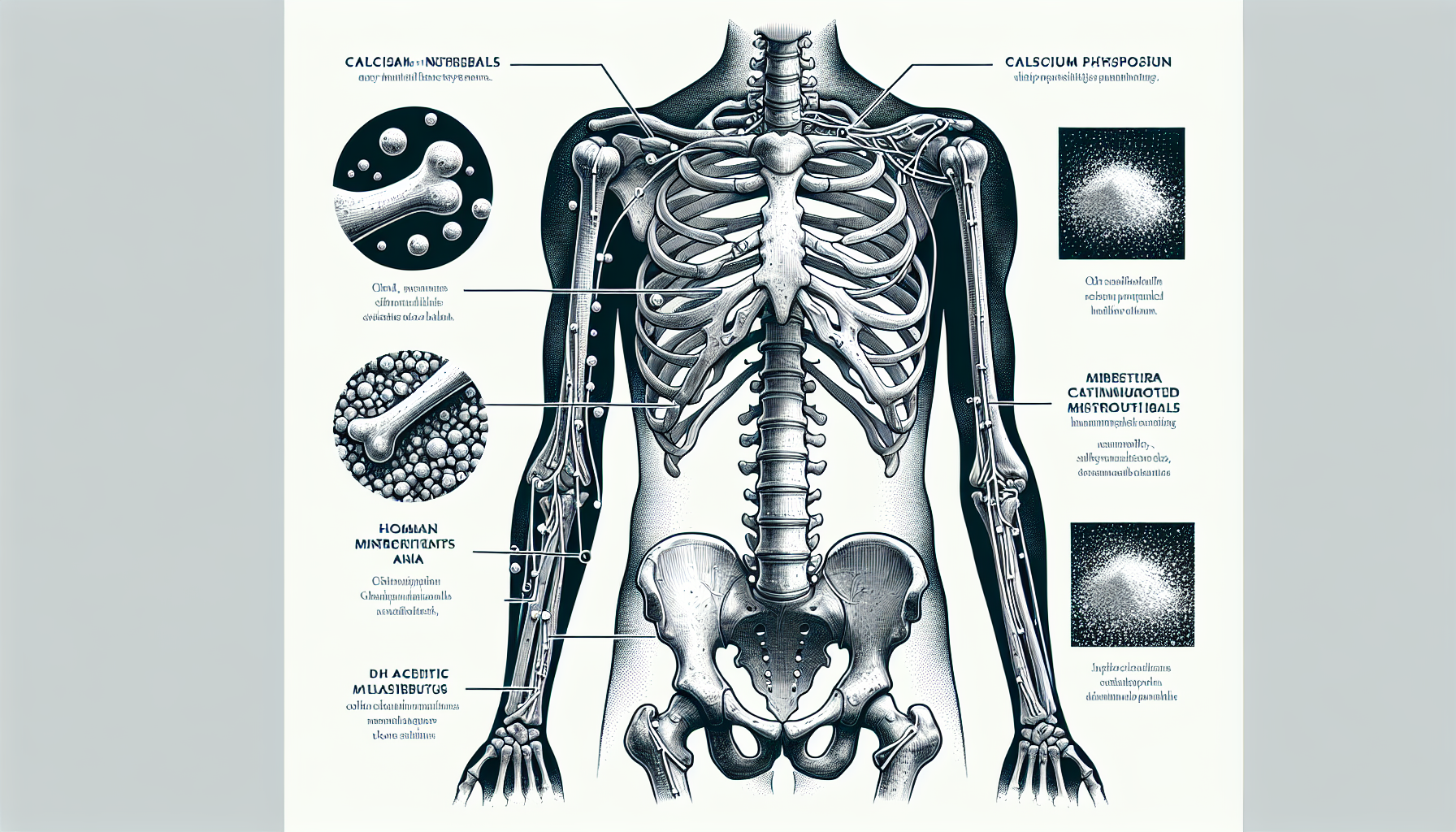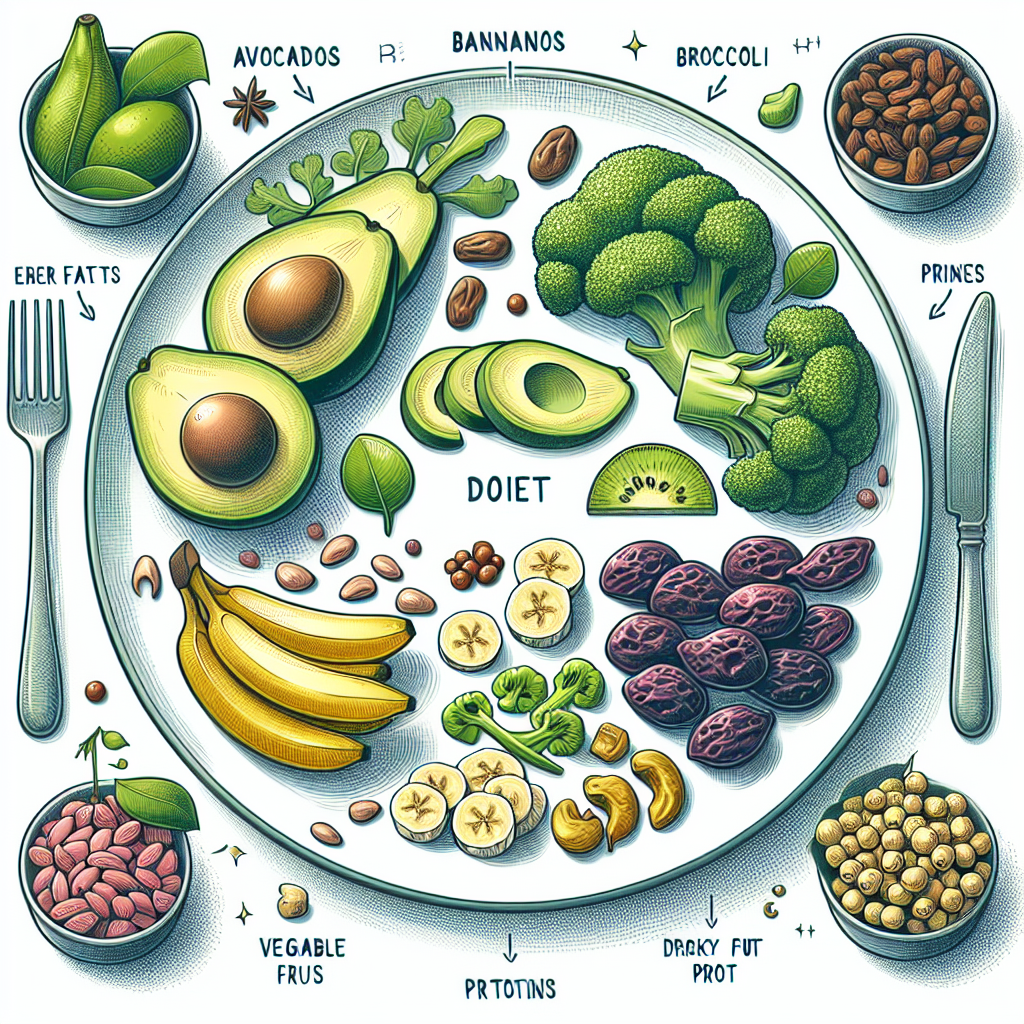Boron is a trace mineral that, despite its relatively low profile compared to well-known nutrients like calcium or vitamin D, plays a crucial role in maintaining and improving bone health. Its involvement in bone growth, repair, and maintenance is an area of increasing interest among scientists and healthcare professionals. In this comprehensive article, we will delve into the multifaceted functions of boron in bone strength and maintenance, exploring how this mineral assists in keeping our skeletal system robust throughout our lives.
Understanding Boron’s Biological Functions
Boron is involved in the regulation of various metabolic processes. It impacts the activity of enzymes and hormones, which are instrumental in the maintenance of bone health. Additionally, boron has been found to influence the metabolism of minerals that are directly related to bone growth and durability, such as calcium, magnesium, and phosphorus.
Bone Growth and Repair
One of boron’s key roles is in the growth and maintenance of bone. It helps to regulate the functions of cells involved in bone development, such as osteoblasts (which build new bone) and osteoclasts (which break down old bone). This balance is essential for normal bone remodeling – a process by which bones are continually renewed to maintain their strength and integrity.
Hormonal Influence
Boron is known to affect the levels and activity of steroid hormones in the body, particularly estrogen and testosterone, which have significant impact on bone density. By modulating these hormones, boron contributes to minimizing bone loss, especially in conditions such as menopause, where a drop in estrogen levels can lead to osteoporosis.
The Role of Diet in Boron Absorption
The human body does not produce boron; therefore, dietary intake is essential. Foods rich in boron include fruits like apples and oranges, leafy vegetables, nuts, pulses, and legumes. However, the bioavailability of boron from these sources can vary, depending on factors such as soil quality and the use of fertilizers in agriculture.
Nutritional Guidelines for Optimal Bone Health
For a deeper understanding of nutrition’s role in bone health, readers may find valuable information in the article, "Bone Health: Nutritional Guidelines for Seniors", which underscores the importance of a balanced diet enriched with essential minerals and vitamins, including boron.
Boron Supplements: Benefits and Considerations
For individuals unable to meet their boron needs through diet alone, supplements may be an option. However, it is crucial to approach supplementation with caution, as excessive intake can lead to adverse effects. Consulting with healthcare providers is recommended to determine appropriate dosage and to understand the interaction of boron with other medications or supplements.
The Importance of Professional Guidance
When considering supplements, it is vital to refer to trusted sources such as the "Medication & Supplements" section on Avix Health for expert advice on safe usage and potential benefits.
Research on Boron and Bone Health
A growing body of scientific research supports the beneficial effects of boron on bone strength and maintenance. Studies have demonstrated that boron supplementation can improve bone density and reduce the risk of osteoporosis, particularly in populations prone to mineral deficiencies.
External Resources for Further Reading
To explore the topic further, readers can consult niche resources such as:
- The Boron and Arthritis report by the Arthritis Foundation, which discusses the potential of boron in preventing bone diseases.
- A study on Boron, Bone Density, and Osteoporosis available on PubMed Central, detailing the direct impact of boron on bone health.
- The International Journal of Endocrinology offers articles on the hormonal effects of boron relating to bone metabolism.
Practical Strategies for Bone Health
Incorporating boron into a comprehensive bone health strategy involves more than just focusing on this single mineral. Weight-bearing exercises, regular bone density screenings, and a well-rounded diet all contribute to keeping bones strong.
Related Articles on Bone Health Strategies
Consider reading these additional Avix Health articles to enhance your bone health knowledge:
- "Understanding the Effects of Menopause on Bone Mass" provides insights on navigating the bone health challenges during menopause.
- "The Benefits of Weight Lifting for Bone Density" explores how resistance training can fortify bones.
- "Strategies to Prevent Bone Loss in the Elderly" offers practical advice for maintaining bone health in later years.
Conclusion
Boron is a pivotal but often overlooked mineral in the pursuit of optimal bone health. Its impact on bone growth, repair, and hormonal balance makes it a key nutrient for maintaining skeletal strength. By ensuring adequate dietary intake of boron, possibly supplemented under professional guidance, individuals can contribute significantly to their bone health. Coupled with a comprehensive approach that includes exercise, diet, and regular screenings, boron can be a valuable ally in the fight against bone-related disorders and conditions.
As research continues to uncover the extensive benefits of boron, it becomes increasingly clear that this trace mineral deserves more attention in the context of overall health and well-being. Whether through diet, supplementation, or a combination of the two, boron’s role in maintaining bone integrity is an essential piece of the health puzzle that should not be overlooked.



